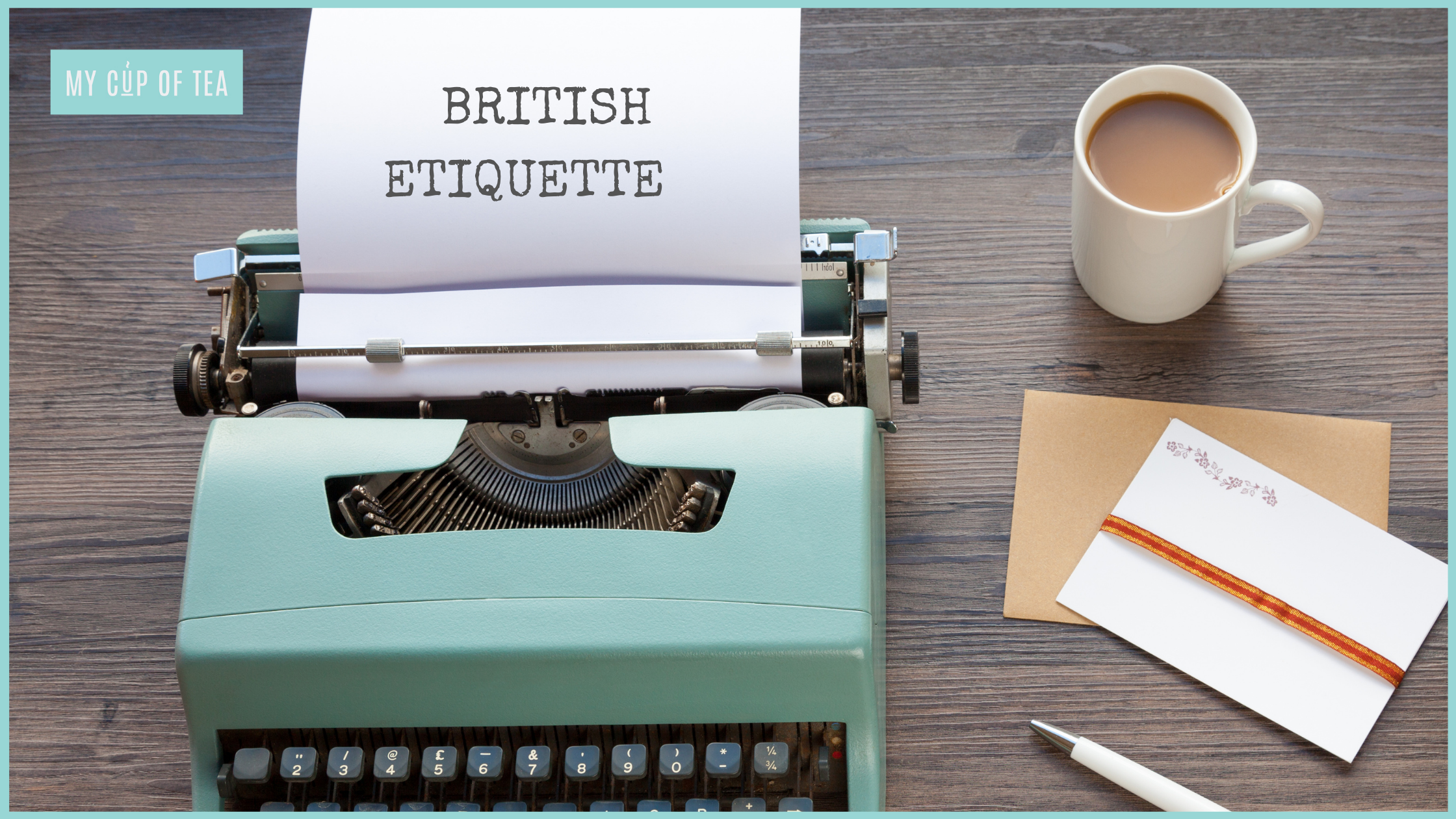
“WHAT WE LEARN WITH PLEASURE WE NEVER FORGET” Alfred Mercer
At My Cup of Tea Language School, we not only teach you the language whether it is Catalan, English, French, Italian or Spanish but we also teach you about the culture where the language originated from.
Etiquette in Britain has differences and similarities to etiquette practiced in every nation. Here is a brief outline of some of the more obvious ‘do’s’ and ‘don’ts’ that you may encounter when visiting Britain (not presently!) or when interacting with a British person.
“the customary code of polite behaviour in society or among members of a
particular profession or group”
DO
1. Stand in line:
Wait patiently for your turn e.g., boarding a bus. It is usual to queue when required and expected that you will take your correct turn and not push in front. ‘Queue jumping’ is no goo
2. Say “Excuse Me”:
If someone is blocking your way and you would like them to move, say excuse me and they will move out of your way.
3. Pay as you Go:
Pay for drinks as you order them in pubs and other types of bars.
4. Say “Please” and “Thank you”:
It is very good manners to say “please” and “thank you”. It is considered rude if you don’t. You will notice in Britain that we say ‘thank you’ a lot.
5. Cover your Mouth:
When yawning or coughing always cover your mouth with your hand.
6. Shake Hands:
When you are first introduced to someone, shake their right hand with your own right hand.
7. Say sorry:
If you accidentally bump into someone, say ‘sorry’. They probably will too, even if it was your fault! This is a habit and can be seen as very amusing by an ‘outsider’.
8. Smile:
A smiling face is a welcoming face.
9. Open doors for other people
Men and women both hold open the door for each other. It depends on who goes through the door first.
DO NOT
1. Do not throw any rubbish or cigarette butts on the floor in the street or anywhere.
You will have a fine of 80£ and they will catch you! Police are all around.
2. Do not stare
Privacy is highly regarded.
3. Do not greet people with a kiss
We only kiss people who are close friends and relatives.
4. Do not pick your nose in public:
We are disgusted by this. If your nostrils need de-bugging, use a handkerchief.
5. Do not spit.
Spitting in the street is considered to be very bad mannered.
6. Do not burp in public
You may feel better by burping loudly after eating or drinking, but other people will not! If you cannot stop a burp from bursting out, then cover your mouth with your hand and say ‘excuse me’ afterwards.
7. Do not pass wind in public
Now how can we say this politely? Let’s say that you want to pass wind. What do you do? Go somewhere private and let it out. If you accidentally pass wind in company say, ‘pardon me’.
Eating
We eat continental style, with fork in the left hand and the knife in the right.
The British generally pay a lot of attention to good table manners. Even young children are expected to eat properly with knife and fork.
The foods we don’t eat with a knife, fork or spoon include sandwiches, crisps and fruit.
How to greet someone
British people are quite reserved when greeting one another. A greeting can be a bright ‘Hello’ ‘Hi’ or ‘Good morning’, when you arrive at work or at school.
1. The Handshake
A handshake is the most common form of greeting among the English and British people and is customary when you are introduced to somebody new.
2. The Kiss
It is only when you meet friends, whom you haven’t seen for a long time, that you would kiss the cheek of the opposite sex. In Britain one kiss is generally enough.
3. Formal greetings
The usual formal greeting is a ‘How do you do?’ and a firm handshake, but with a lighter touch between men and women.
‘How do you do?’ is a greeting not a question and the correct response is to repeat ‘How do you do?’ You say this when shaking hands with someone.
First person “How do you do?”
Second person “How do you do?”
‘How are you?’ is a question and the most common and polite response is “I am fine thank you and you?”
First person “How are you?”
Second person “I am fine thank you and you?”
Nice to meet you – Nice to meet you too. (Often said whilst shaking hands)
Delighted to meet you– Delighted to meet you too.
Pleased to meet you – Pleased to meet you too.
Glad to meet you – Glad to meet you too
Good Morning / Good Afternoon / Good Evening
4. Informal greetings
Hi – Hi or hello
Morning / Afternoon / Evening (We drop the word ‘Good’ in informal situations).
How’s you? – Fine thanks. You?
Thank you / thanks / cheers
We sometime say ‘cheers’ instead of thank you. You may hear ‘cheers’ said instead of ‘goodbye’, what we are really saying is ‘thanks and bye’.

